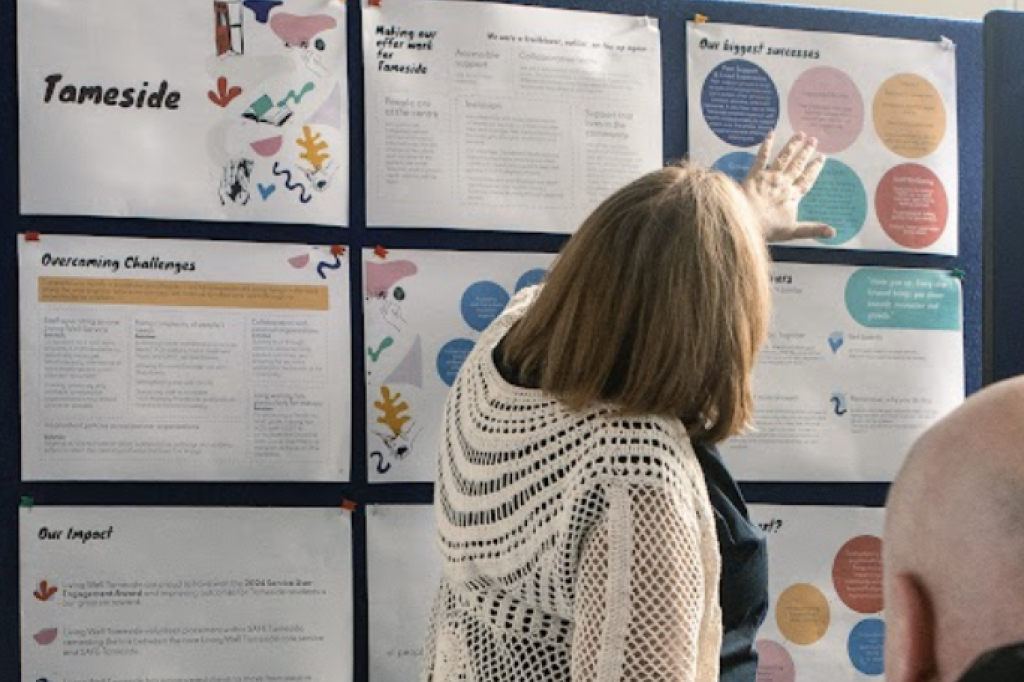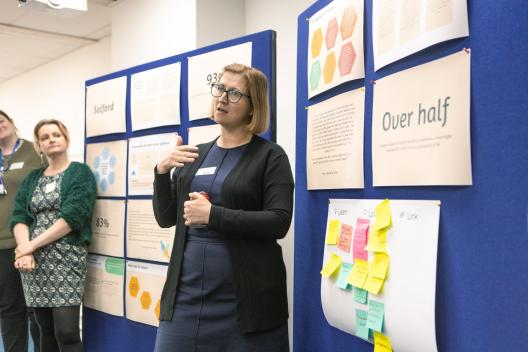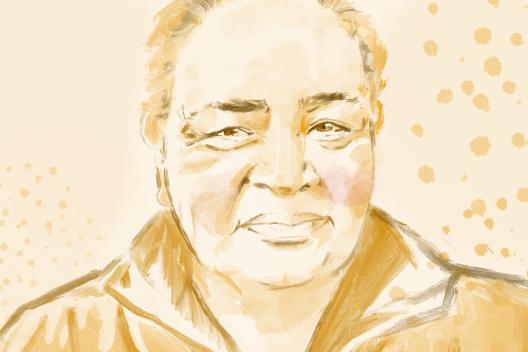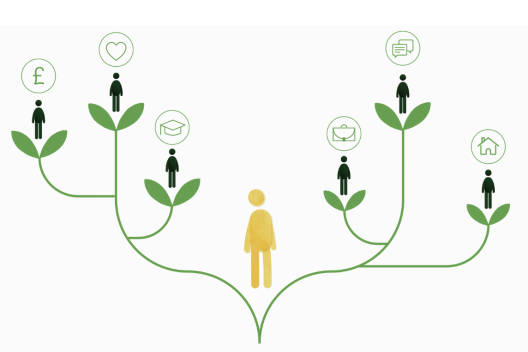The ‘Living Well’ model recognises that non-clinical factors can be significant causes of mental ill health, including poverty, poor housing, or struggling to access benefits.
An independent evaluation found that this approach supports people to make progress towards improved mental health and quality of life, whilst improving staff satisfaction.
Five years on, all 10 Greater Manchester boroughs have made progress adopting and adapting the Living Well model, to create environments that support meaningful transformation.
This has led to significant impact for people, teams and communities:
Improved outcomes
In Salford, 100% of people agree or strongly agree that the support they received has improved their wellbeing, and staff satisfaction in the Salford Mental Health Neighbourhood team is much higher than local and national averages with 94% of staff agreeing they would recommend their organisations as a place to work.
In Salford, 100% of people agree or strongly agree that the support they received has improved their wellbeing, and staff satisfaction in the Salford Mental Health Neighbourhood team is much higher than local and national averages with 94% of staff agreeing they would recommend their organisations as a place to work.
Collaborative services
An explicit focus on building an inclusive culture and shared practice in local areas enabled teams in Heywood, Middleton and Rochdale to partner with community organisations to strengthen their offer.
“Over the last 30 years, lots of different people have helped me. It’s good to talk to them [the Living Well professionals] and they’re really helpful. It’s good they link with my doctor and the nurse from Turning Point [substance misuse]. Everyone is working together to help me.”
An explicit focus on building an inclusive culture and shared practice in local areas enabled teams in Heywood, Middleton and Rochdale to partner with community organisations to strengthen their offer.
“Over the last 30 years, lots of different people have helped me. It’s good to talk to them [the Living Well professionals] and they’re really helpful. It’s good they link with my doctor and the nurse from Turning Point [substance misuse]. Everyone is working together to help me.”
Community connections
In Wigan, the peer workforce led the development of the trauma-informed Game Changing Community Programme, working with Wigan Athletic Community Trust and BeWell (council leisure services).
“The gym programme has impacted me far beyond my physique. The main benefit I have noticed is not of my improving physical activity, but that of my mental wellbeing.”
In Wigan, the peer workforce led the development of the trauma-informed Game Changing Community Programme, working with Wigan Athletic Community Trust and BeWell (council leisure services).
“The gym programme has impacted me far beyond my physique. The main benefit I have noticed is not of my improving physical activity, but that of my mental wellbeing.”
"I can honestly say we would never have been able to do what we did had we not had IU alongside us bringing that external accountability, that drive and that different thinking."Key GM stakeholder
This year (2025) we supported Salford Living Well to evaluate their impact and found exciting outcomes for both staff and people using the Salford Living Well Service.
- 100% were happy with the standard of care provided by Salford Mental Health Neighbourhood Team
- 55% of people supported by Salford Mental Health Neighbourhood Team experience a reliable improvement in their recovery and quality of life
- 100% of people agreed or strongly agreed that the support they received has improved their wellbeing
- 94% of staff would recommend their organisations as a place to work and if a friend or relative need mental health support.
Salford Living Well is also leading the way in integrated community-led working, 69% of stakeholders strongly agree or agree that partners work together to ensure that voices from across the community are heard in the co-creation of the model.
The approach
We are proud of the impact that we have achieved with partners in Greater Manchester, to organise around a vision of a fit-for-purpose Living Well mental health system, now responding directly to the most urgent problems, whilst building a better system for the future.
Our adopt and adapt approach has focused on three key strands:
- Agreeing a shared vision, rooted in lived experience - we played a key role in convening key partners (including the voluntary sector and experts by experience) to connect around their shared purpose, share insights and learning, and co-design their shared vision.
- Enabling collaborative leadership, learning, and governance - To bring this vision to life, we worked with stakeholders to design cross-sector groups and spaces, with The Community Mental Health Coordinating Group providing a vital forum for leadership, coordination and accountability for Living Well.
- Scaling new cultures and practices across the mental health system - to tackle the entrenched issue of fragmented services and lack of collaboration between agencies, we supported a practical and cultural shift towards an integrated approach, by placing greater value on lived experience, taking a strengths-based trauma-informed approach, and embedding a learning culture.
"IU have facilitated the Community of Practice… and now [colleagues] are actively sharing information and approaches. We wouldn’t have had that, hand on heart, it wouldn’t have happened had it just been the two organisations."Key GM stakeholder
Share this page









